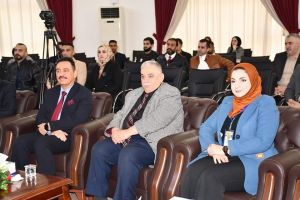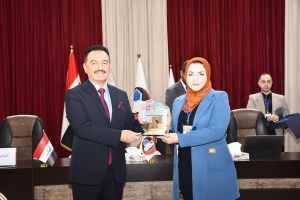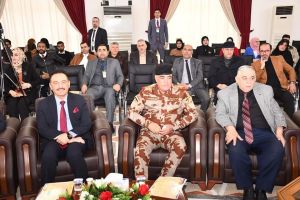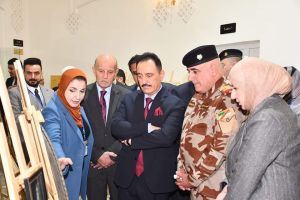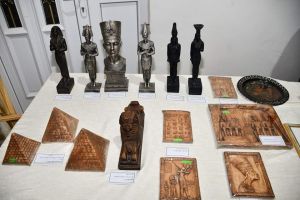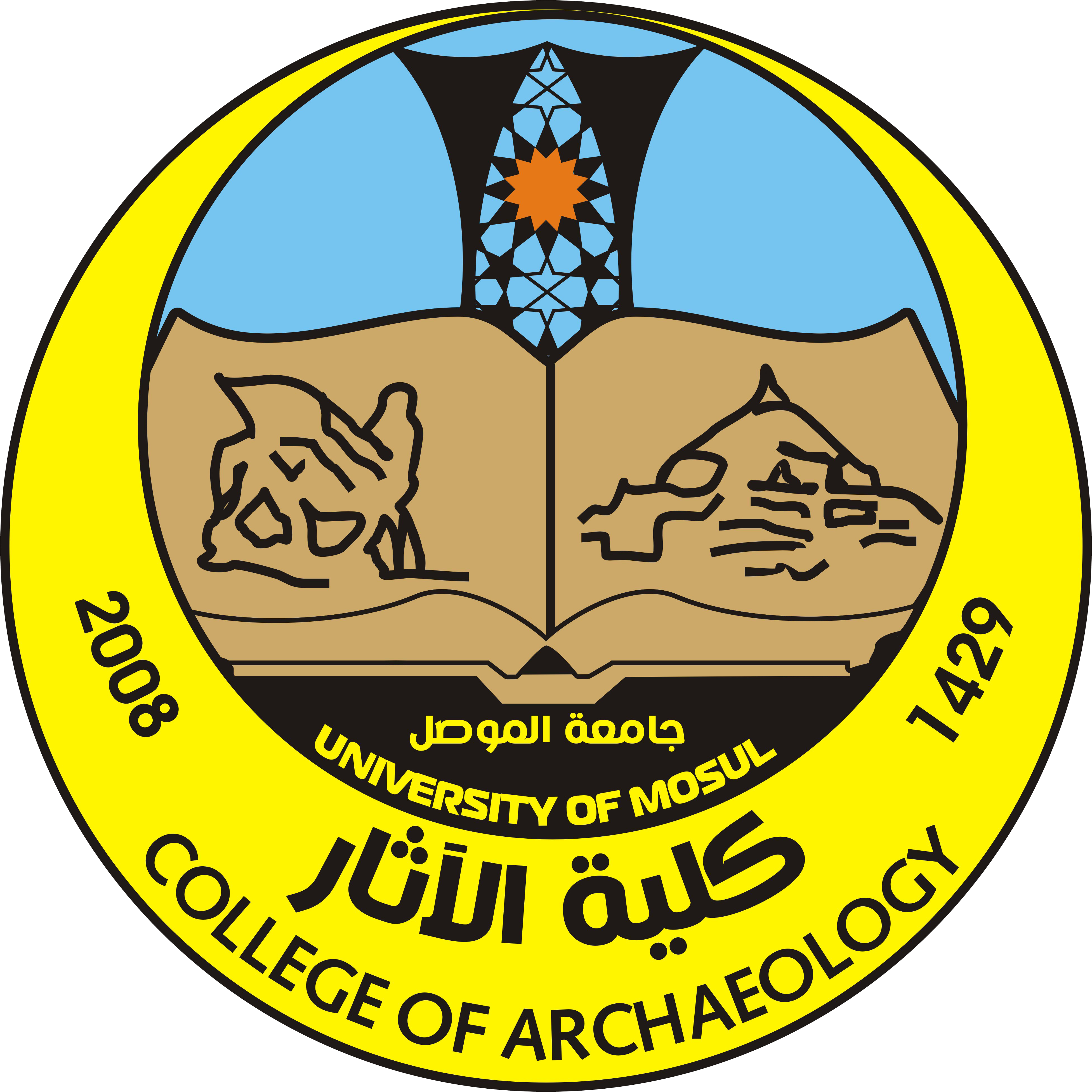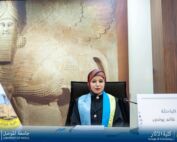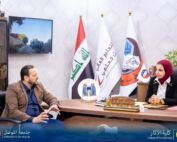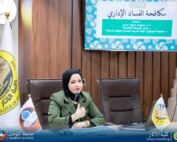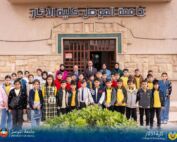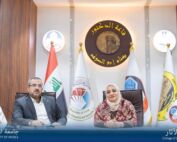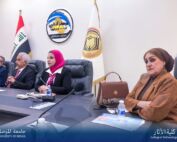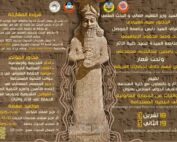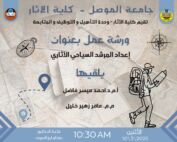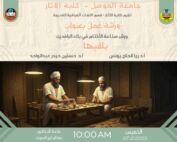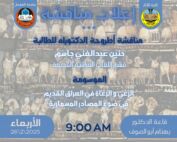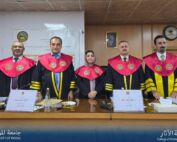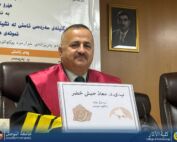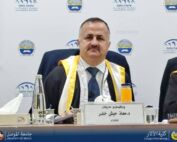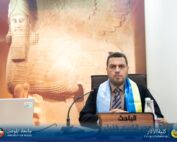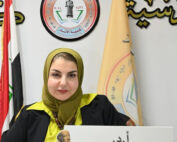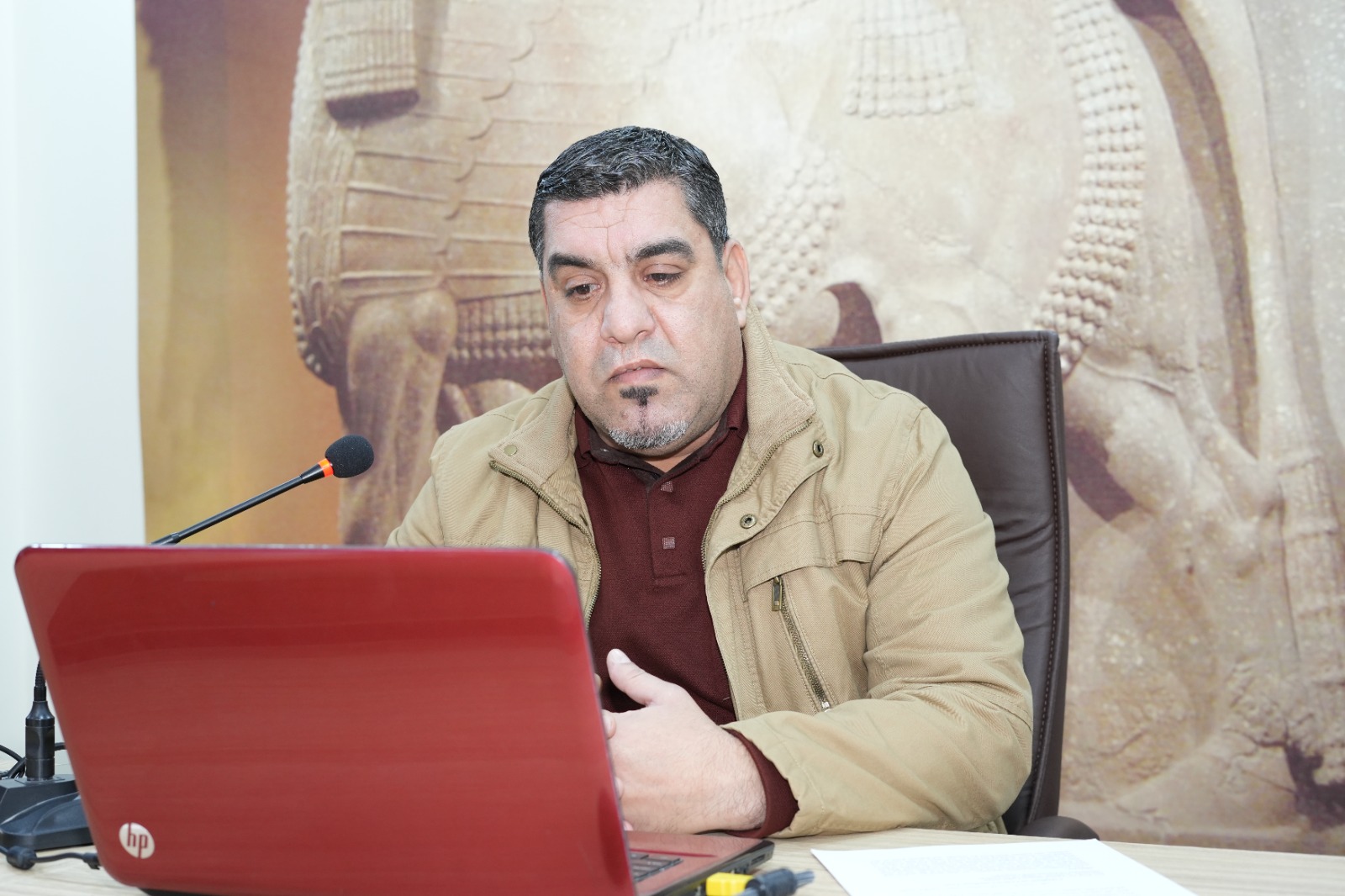29 December، 2023
The Fourth International Conference of the College of Archaeology entitled “Nineveh, the Cradle of Civilization and Eternal Giving”
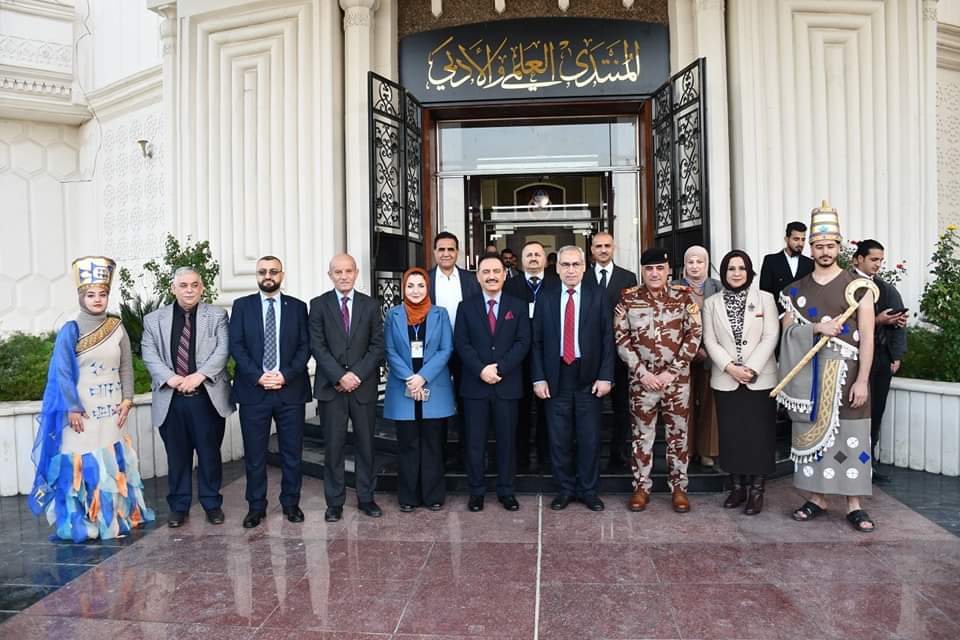
Under the slogan “Nineveh’s past and its bright future”, the College of Archeology, University of Mosul, holds the fourth international conference entitled “Nineveh, the cradle of civilization and eternal giving”
Under the patronage of His Excellency the Minister of Higher Education and Scientific Research, Dr. Naeem Al-Aboudi. Under the supervision and attendance of Professor Dr. Qusay Kamal Al-Din Al-Ahmadi, President of the University of Mosul, and the follow-up of the Dean of the College of Archaeology, Assistant Professor Dr. Yasmine Abdel Karim Muhammad Ali.
The College of Archeology holds its fourth international conference entitled “Nineveh, the Cradle of Civilization and eternal Giving,” on Thursday, December 28, 2023, in the Scientific and Literary Forum Hall.
The conference was attended by Professor Dr. Munir Salem Taha, Scientific Assistant to the President of the University, the Commander of Nineveh Operations, Major General Abdullah Ramadan Al-Jubouri, Professor Dr. Yassin Taha Al-Hajjar, Dean of Al-Nour University College , and a number of members of the University Council and academic staff.
The conference program began with a speech by Assistant Professor Dr. Yasmine Abdel Karim Muhammad, Dean of the College, followed by a video presentation to introduce the historical and cultural depth of the archaeological city of Nineveh and to introduce the pioneering role of Iraq’s ancient archaeological and civilization. After that, a lecture was given entitled “The Results of the recent Excavations of the German Mission at the Western Nineveh Site,” which was delivered by the professor. Dr. Stephen Maul, Director of the Institute of Assyrian Studies at the German University of Heidelberg, followed by the opening of an exhibition that included a collection of cuneiform texts from the work of students at the college of Archeology, as well as artistic paintings, heritage pieces, and photos.
The conference included five topics that focused on archaeology, Islamic archaeology , ancient languages, ancient civilizations, and archaeological excavations. These topics came within the framework of two sessions with 20 papers, which dealt with reading the tables of the Sumerian kings, drugs and plant medicines in ancient Iraq, the impact of earthquakes on the Assyrian defensive fortifications, and economic relations between Egypt and Mesopotamia and the responsibility of kings and rulers in establishing irrigation projects in Mesopotamia, some of the cultural aspects of the prehistoric Tal Afar region, architectural and artistic data, the problems resulting from the destruction of the ancient wall and gates of Nineveh and ways to address them, in addition to societal coexistence in Assyria and other specialized contents addressed in the research papers.
It is noteworthy that this conference adopted main objectives that were evident in emphasizing the continuation of archaeological research and effort in Nineveh despite the destruction that happened to it, the plundering and theft of its antiquities, and the primitive methods for excavating antiquities from their original sites, and strengthening the bonds of joint scientific and archaeological cooperation between the College of Archeology and various Iraqi and Arab universities as well as international ones, and enhancing joint academic and practical communication between the college and the General Authority for Heritage and Antiquities.
